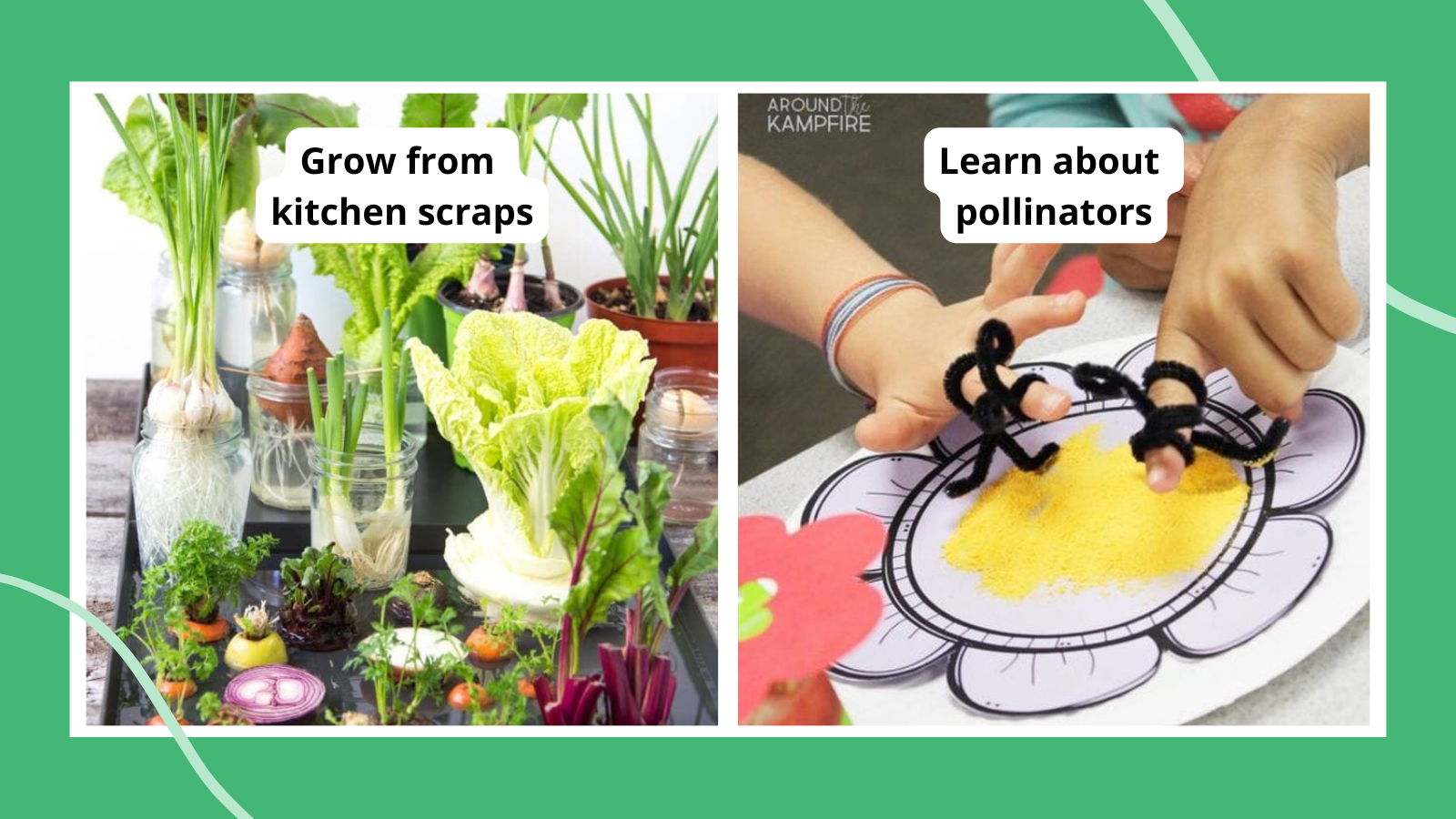
Looking for creative plant life cycle activities? We have 33 fun and free teaching ideas including videos, hands-on experiments, printables, and more. Your students will love learning about the plant life cycle and how they can help plants grow and thrive.
1. Read The Tiny Seed by Eric Carle
Eric Carle’s The Tiny Seed is one of the best plant life cycle references for little ones. Listen to it for story time, then use the book as a springboard for further activities.
2. Start with an anchor chart
Have your students help you create an anchor chart of the plant life cycle, then post it in your classroom for reference as you do some hands-on learning.
Learn more: Plant Anchor Chart at First Grade Fanatic on Pinterest
3. Discover how a seed grows into a plant
If you need a strong video to kick off a lesson about seeds or the plant life cycle, this video is a good place to start.
4. See it grow in slow-mo
Check out this time-lapse video that shows the fascinating details of how a plant’s root system grows quickly over the course of a few days. After this, kids will definitely want to see it happen for themselves!
5. Spin a plant life cycle wheel
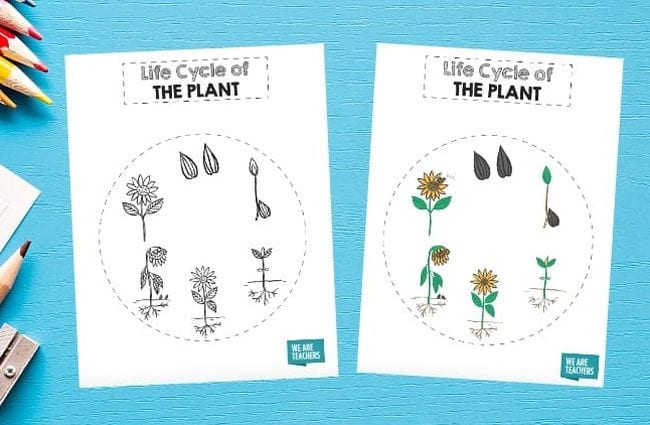
Grab the free printables and watch this video to learn how to turn them into an interactive learning tool with paper plates.
Learn more: Plant Life Cycle Printables at We Are Teachers
6. Germinate in a jar
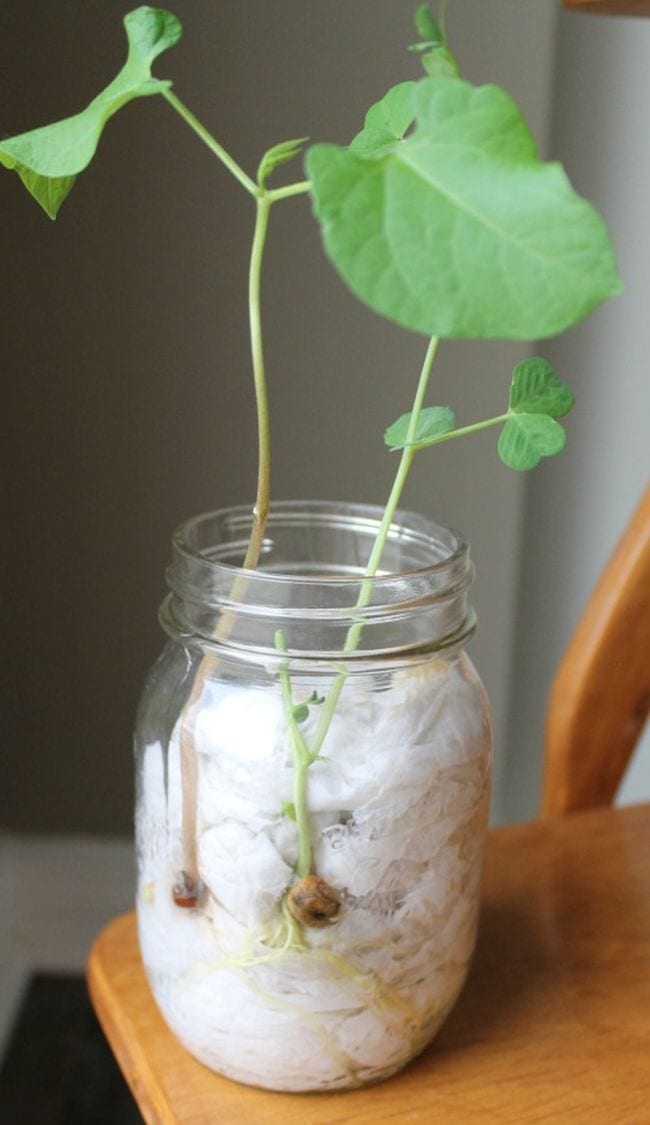
This is one of those classic plant life cycle activities every kid should try. Grow a bean seed in wet paper towels up against the side of a glass jar. Students will be able to see the roots form, the sprout take off, and the seedling reach for the sky!
Learn more: Germination Jars at How Wee Learn
7. Build a sprout house
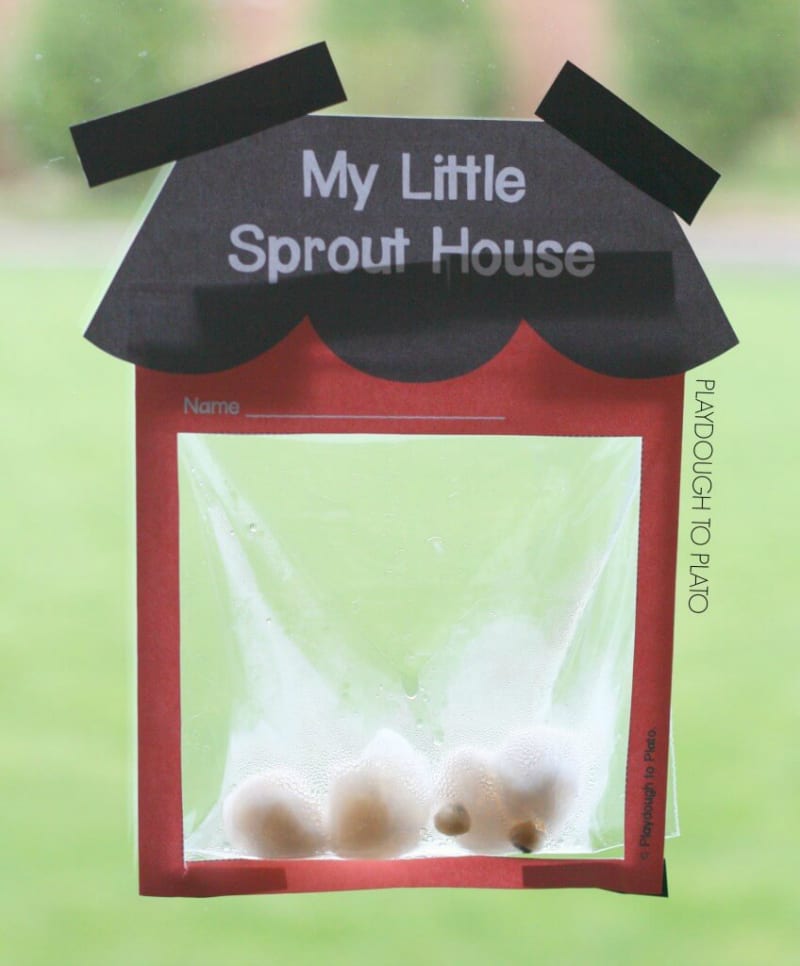
This is another great idea for watching seeds sprout. For this one, all you need is a sunny window (no soil required).
Learn more: Sprout House at Playdough to Plato
8. Sort sprouted seeds
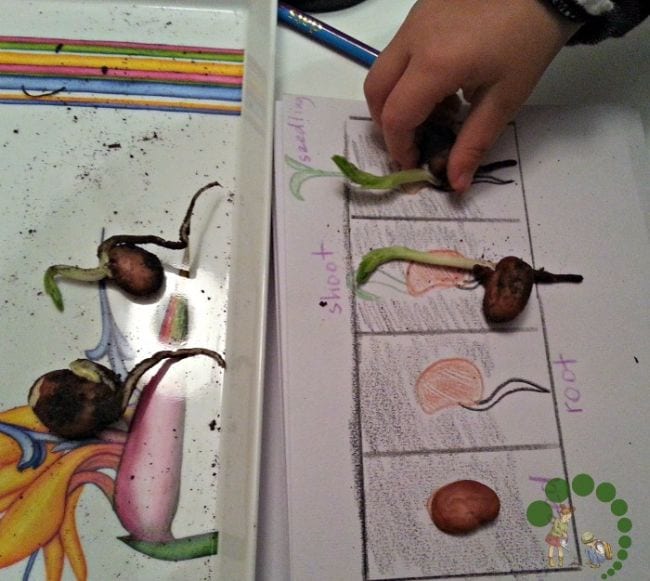
As your seeds begin to grow, sort and draw the various stages. Little ones can learn simple vocab like root, sprout, and seedling. Older students can tackle advanced terms like cotyledon, monocot, and dicot.
Learn more: Seed Sorting at Montessori Nature
9. Conduct a plant dissection experiment
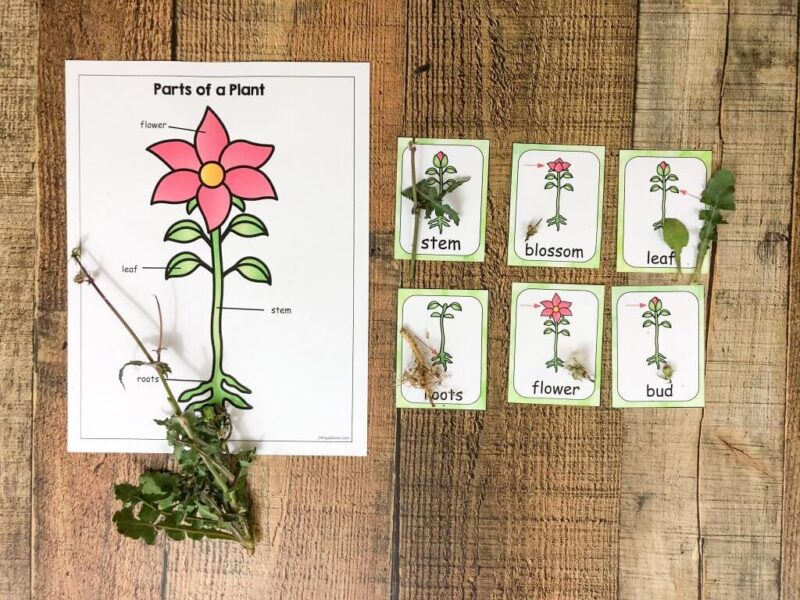
Using magnifying glasses and tweezers, students will dissect flowers or food plants to learn the different parts. Handy tip: You don’t need separate plants for every student. Bring in one plant and give each student a different part.
Learn more: Plant Dissection at Royal, Baloo, and Logi Bear Too
10. Create living art with cress
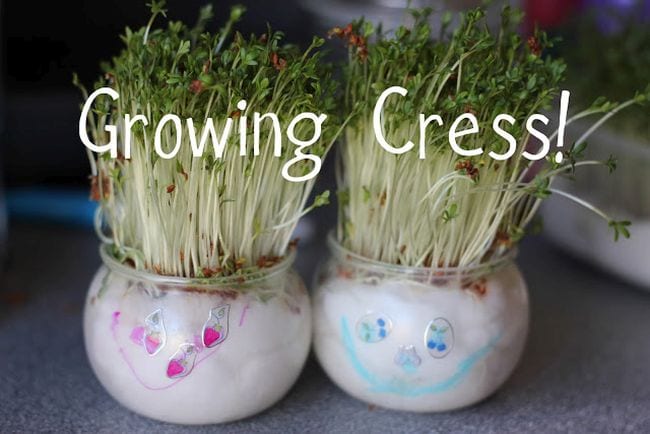
Watercress is fun to watch because it grows very quickly on damp cotton. Try growing it as “hair,” or sow the seeds to create patterns or letters.
Learn more: Watercress Growing at The Imagination Tree
11. Sprout sweet potatoes
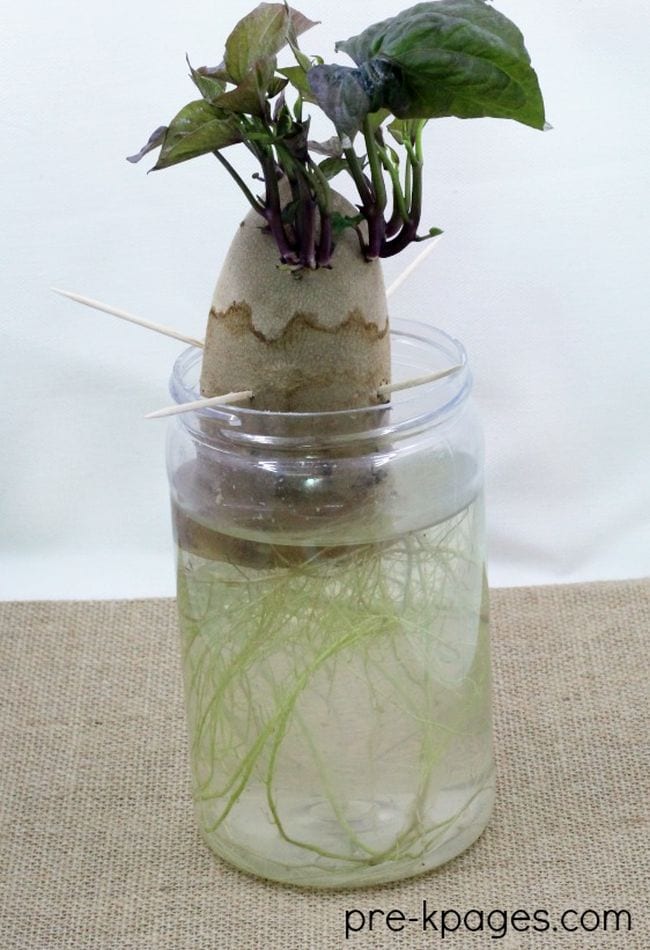
Not every plant needs seeds to reproduce! Grow a sweet potato to learn about a different kind of plant life cycle.
Learn more: Sprouting Sweet Potatoes at Pre-K Pages
12. Discover why seeds have coats
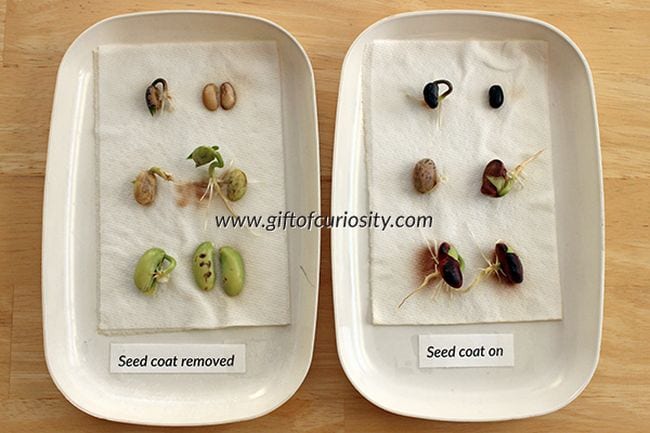
Seed coats provide protection, but what happens if you remove them? Go hands-on and find out in this interesting experiment.
Learn more: Seed Coating Experiment at Gift of Curiosity
13. Sculpt the plant life cycle in clay
Can’t grow a plant yourself? Sculpt one from clay instead! Watch this Claymation video for inspiration, then pull out the Play-Doh and get to work!
14. Don’t forget about pollinators!
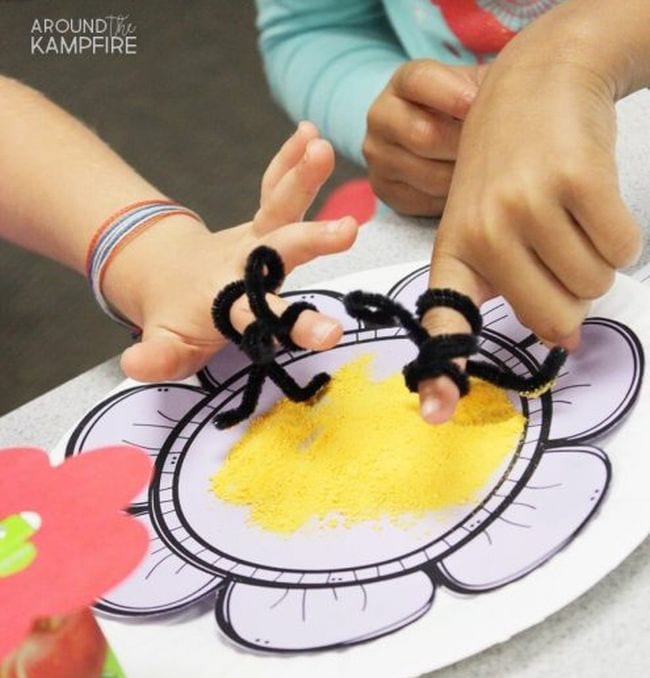
Seed-bearing plants require pollination, often helped along by insects like bees and butterflies. This pipe cleaner activity shows little ones how pollination works.
Learn more: Pipe Cleaner Pollinators at Around the Kampfire
15. Grow an avocado
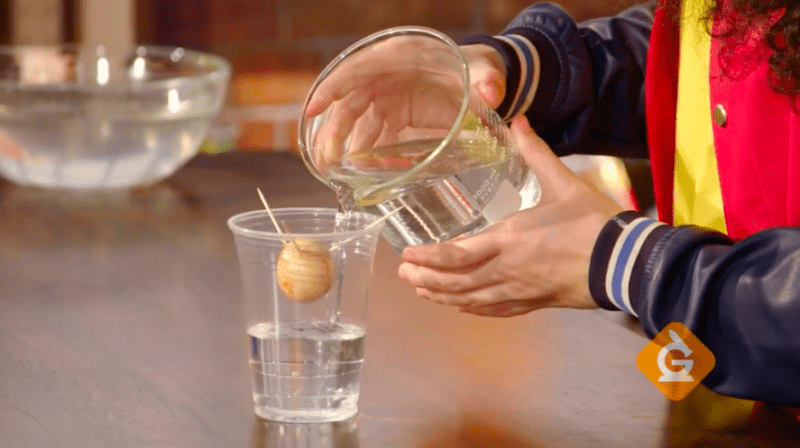
Did you know that an avocado seed has a fault line? Learn this and more in this DIY activity that teaches kids how to grow their own avocado plant.
Learn more: Grow an Avocado at Generation Genius
16. Explode a seed pod
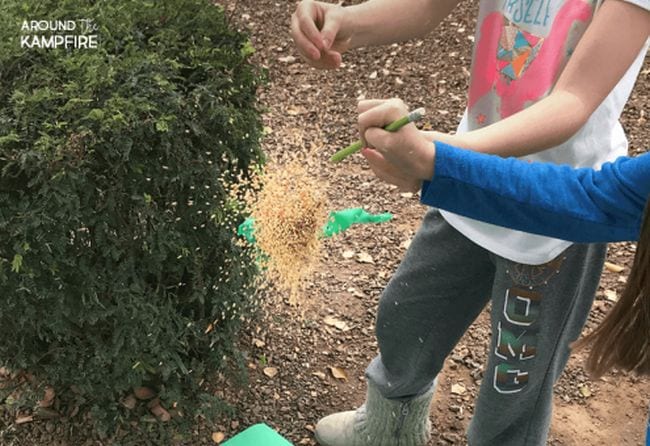
Plants that rely on seeds as part of their life cycle need to ensure they spread far and wide. Some plants even have exploding seed pods that help the process along! Learn about them in this cool activity.
Learn more: Seed Pods Activity at Around the Kampfire
17. Display a life cycle bulletin board
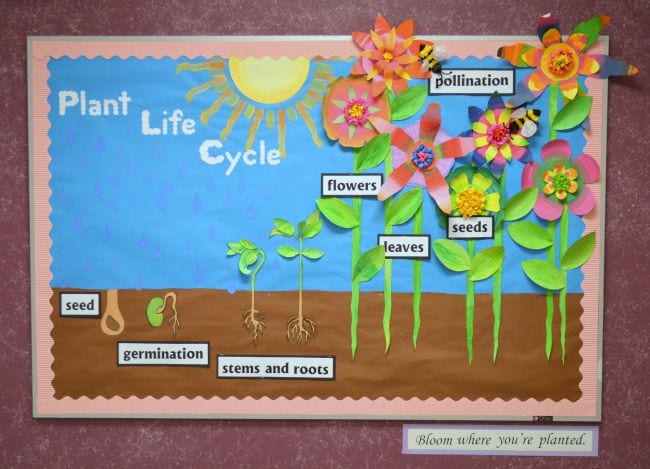
We love how clean and easy to understand this plant life cycle bulletin board is. And those colorful flowers are a fantastic touch!
Source: Life Cycle Bulletin Board at Leslie Anderson on Pinterest
18. Go outside to conduct a plant study
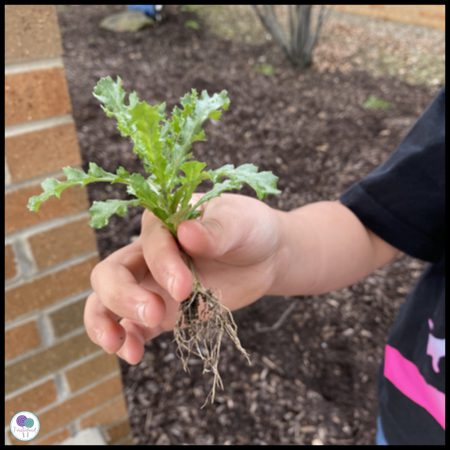
After reading a story about what botanists do, students head outside to do a little field work themselves. Not only will they learn a lot, they may help clean up the school grounds!
Learn more: Going on a Plant Field Study at Firstieland
19. Create a plant life cycle hat
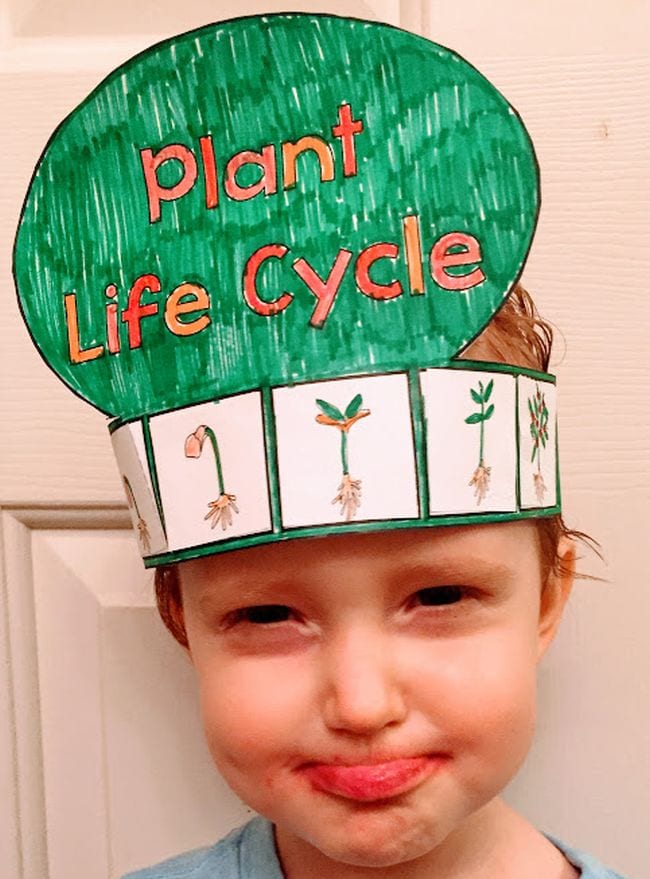
Get some practice sequencing as you cut out and paste together this sweet little topper. Kids will love wearing it as they learn.
Learn more: Plant Life Cycle Hats at Herding Kats in Kindergarten
20. Learn how seeds spread
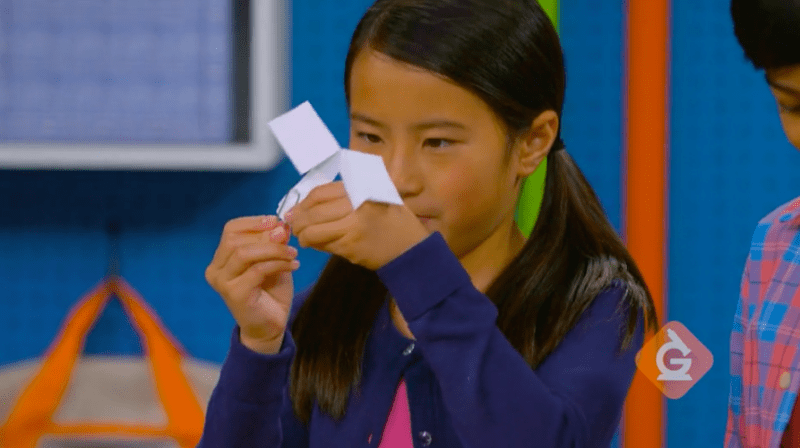
Using a piece of paper and a paper clip, students will make a model of a maple seed. After they launch their seeds, they can watch them spin to the ground like helicopters.
Learn more: Make a Seed Model at Generation Genius
21. Fold a flower flip-book
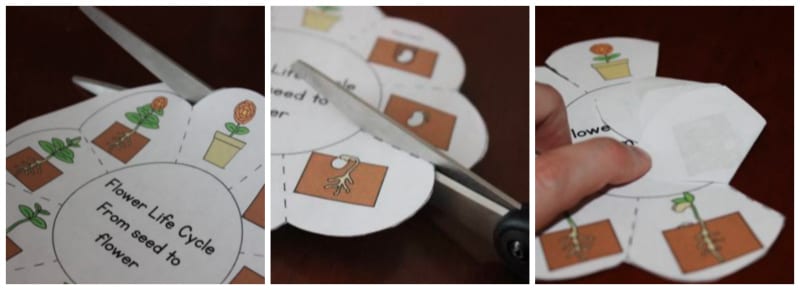
The petals of this free printable flower unfold to reveal the stages of a plant’s life cycle. So clever!
Learn more: Flower Flip-Book at Teaching Momster
22. Diagram paper plants with shredded soil
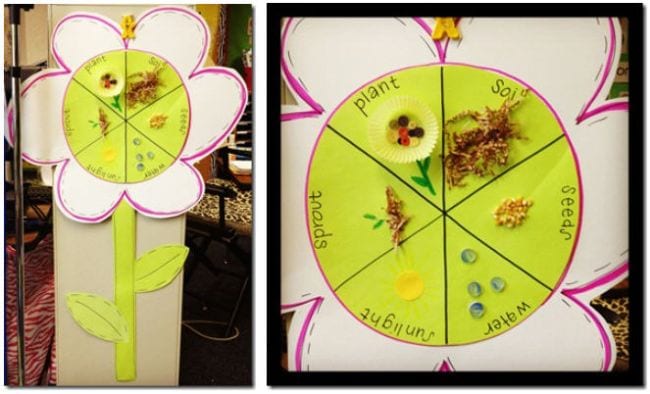
This plant life cycle diagram uses paper shreds for soil, a cupcake liner for the flower, and more smart little details that kids will really appreciate.
Learn more: Diagram Paper Plants at Cara Carroll
23. Leaf chromatography
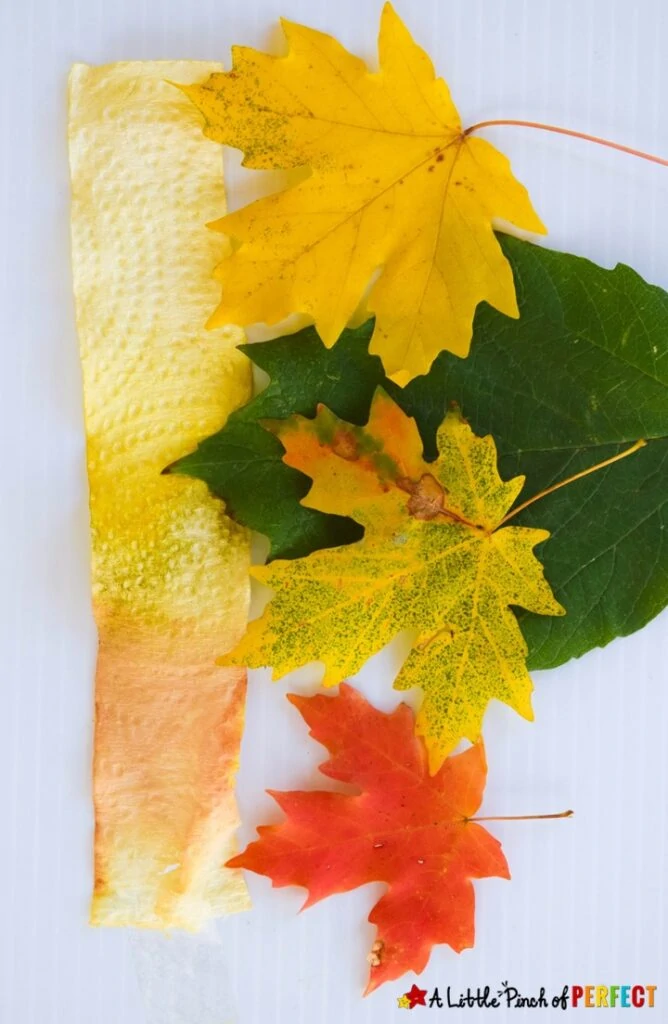
The different colors found in leaves are created by different chemicals—chlorophyll, flavonoids, carotenoids, and anthocyanins. In this experiment, students will see if they can get the pigments in the leaves to separate through chromatography so they can take a closer look at the colors found inside leaves.
Learn more: Leaf Chromatography at A Little Pinch of Perfect
24. Paint with chlorophyll

Integrate art into your plant life cycle activities! In this activity, students learn the importance of chlorophyll and its role in how a plant makes its own food.
Learn more: Paint With Chlorophyll at Around the Kampfire
25. Try a digital flip-book
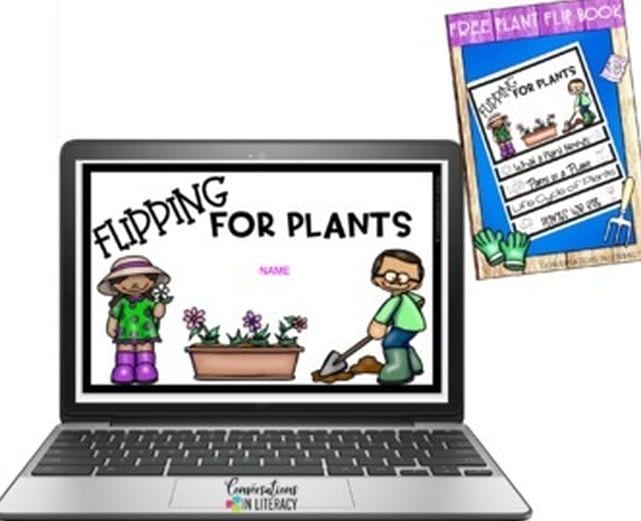
Learning online? This free digital activity includes a printable version for kids to complete at home, but it can also be completed virtually to save paper.
Learn more: Digital Flip-Books at Conversations in Literacy
26. Compare soils
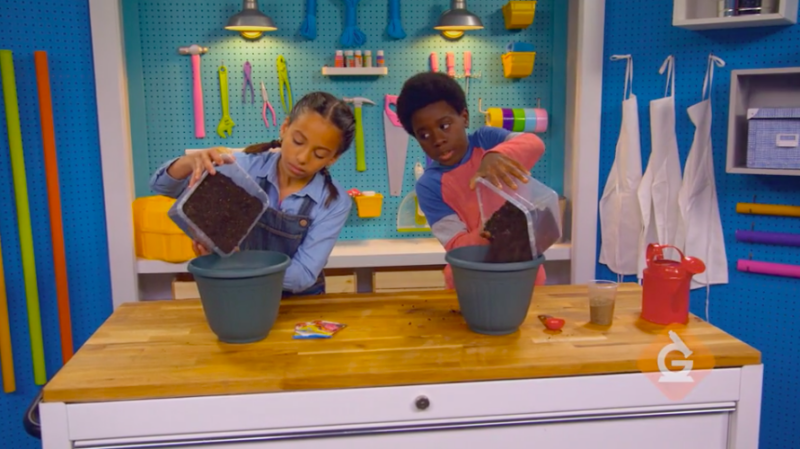
Plants need many things to grow, including sunlight, water, and food. In this experiment, students will see which plant grows better, one in plain soil or one in fertilized soil.
Learn more: Plant Growth Conditions at Generation Genius
27. Regrow kitchen scraps
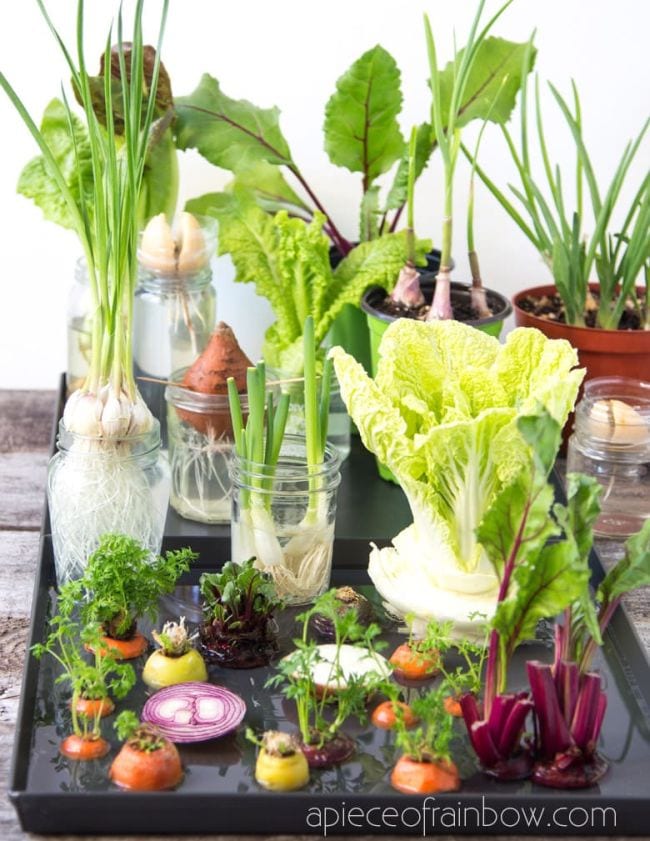
Here’s another project showing that not every plant needs seeds. Save kitchen scraps and try regrowing them, with or without soil.
Learn more: Regrow Kitchen Scraps at A Piece of Rainbow
28. Plant seeds in ice cream cones
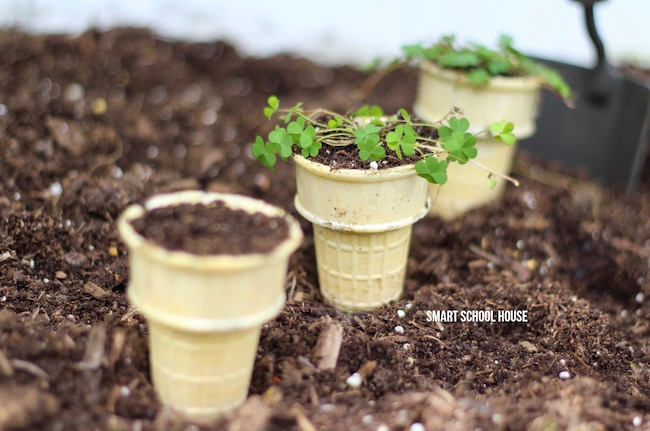
Learn how to use 100% biodegradable ice cream cones as planters for seedlings. There’s a trick to making it work!
Learn more: Ice Cream Cone Seedling Garden at Smart School House
29. Make a sunny sunflower
Make 3D sunflowers with fold-out leaves that teach the life cycle of the sunflower. Then, try growing your own!
30. Do a plant-life-cycle book study
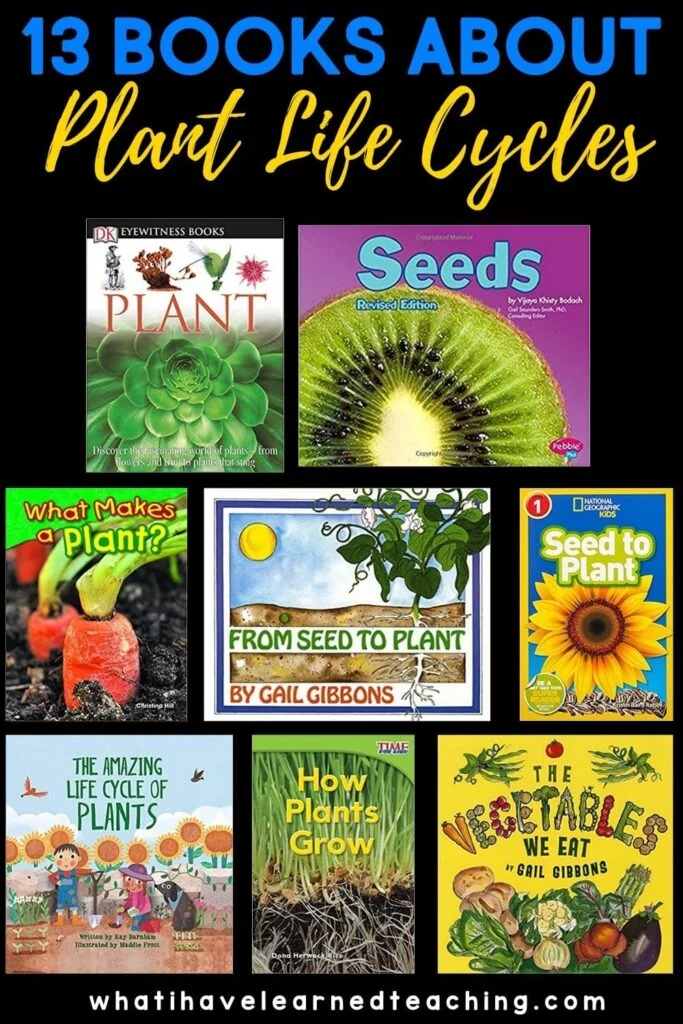
Break your students into small groups and have each group read one of these stories, then share what they learned with the class. From how plants grow and where our food comes from to the amazing power of seeds, your students will eat up these interesting stories.
Learn more: Plant Life Cycle Books at What I Have Learned
31. Learn what germination means
This easy-to-follow and fun-to-watch video teaches kids all about germination—the process of the growth of a seed into a plant.
32. Keep a plant journal
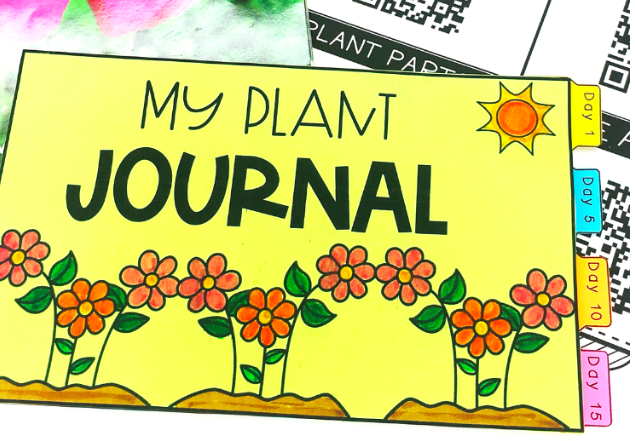
What better way to learn about the plant life cycle than with careful observation? Every few days after you plant your seeds, students will draw and label the changes that they see in their growing plant.
Learn more: Plant Journal at Chalkboard Chatterbox
33. Learn the “Parts of a Plant Song”
Roots, stem, leaves, and flowers! This catchy tune will help your young learners understand the parts of a plant in a memorable way.






